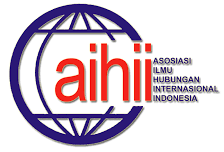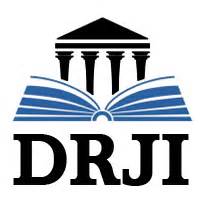India Sebagai Mediator Global: Multi-Alignment Sebagai Upaya Dalam Mengatasi Resesi Global 2023
Abstrak
Tulisan ini bertujuan untuk mendeskripsikan dan menganalisis sentralitasIndia melalui kebijakan multi-alignment-nya yang berusaha berhubungan baikdengan negara dari berbagai macam blok dalam forum multilateral untuk mencapai kepentingan nasionalnya demi menghadapi resesi global 2023. Menggunakan metode kualitatif deskriptif dengan teknik studi literatur, tulisan ini mencoba melihat upaya India dalam mengimplementasikan kebijakan multi-alignment, khususnya pada forum internasional. Tulisan ini meninjau sikap India sebagai kekuatan baru dalam memediasi permasalahan global. Tulisan ini berpendapat bahwa India merupakan sebuah kekuatan barudalam tata kelola global yang memiliki signifikansi yang kuat. Munculnya India sebagai kekuatan baru dipertegas melalui upaya strategis India dalam berhubungan dengan negara lain. Penulis meninjau keanggotaan India di forum-forum internasional yang menunjukkan preferensi India dalam tatanan global demi kepentingan nasionalnya. Peran aktif India di BRICS, IBSA dan IMF menunjukkan prestige India sebagai kekuatan baru di politik global dalam memposisikan kepentingan India. Adapun penulis menyarankan bahwa sentralitas India dalam forum internasional juga perlu lebih diperkuat, khususnya terhadap tantangan presidensi G20 mendatang yang berhadapan dengan resesi global 2023. Tulisan ini menyimpulkan bahwa kebijakan multi-alignment India efektif untuk mencapai kepentingan nasionalnya.
This paper aims to describe and analyze India's centrality through its multi-alignment policy that seeks to relate well with countries from various blocs in multilateral forums to achieve its national interests to face the 2023 global recession. Using a descriptive qualitative method with literature study techniques, this paper tries to see India's efforts in implementing its multi-alignment policy, specially in international forums. This paper examines India's stance as a new power in mediating global problems. We argues that India is a new force in global governance that has strong significance. India's emergence as a new power is emphasized through India's strategic efforts in dealing with other countries. We reviews India's membership in international forums that demonstrate India's preference in the global order for its national interests. India's active role in BRICS, IBSA and IMF shows India's prestige as a new power in global politics in positioning India's interests. We suggests that India's centrality in international forums also needs to be further strengthened, especially against the challenges of the upcoming G20 presidency that faces the 2023 global recession. This paper concludes that India's multi-alignment policy is effective in achieving its national interests.
Kata Kunci
Teks Lengkap:
PDFReferensi
Ahmed, M., Shahbaz, M., Qazi Abro, M. M., & Ur Rehman, I. (2021). The impact of COVID-19 on economic growth: empirical evidence from the G20 countries. Journal of Economic Structures, 10(1), 1-18.
Amadeo, K. (2022). The Causes and Effects of the 2008 Financial Crisis. The Balance. https://www.thebalance.com/2008-financial-crisis-causes-and-effects-3305679
Aneja, R., & Ahuja, V. (2021). An assessment of socioeconomic impact of COVID‐19 pandemic in India. Journal of Public Affairs, 21(2), e2266.
Baily, M. N., Litan, R. E., & Johnson, M. (2013). The US economy in crisis: Overview and analysis. Brookings Institution Press.
Bhatia, R., Kripalani, M. (2022). The Group of Twenty Today: India’s Opportunity to Lead. India Foundation Journal, 3(6), 6-14
Bhattacherjee, K. (2021, 4 Maret). India reiterates need for global cooperation to defeat pandemic. The Hindu. Diakses pada tanggal 10 Mei 2023 melalui https://www.thehindu.com/news/national/india-uk-unveil-10-year-roadmap-to-elevatebilateral-ties-to-strategic-comprehensivepartnership/article34481201.ece
Blarel, N. (2012). India: the next superpower?: India's soft power: from potential to reality? LSE IDEAS.
Chadha, A. (2021). India’s COVID-19 Strategy and implications for its relations in the Indian Ocean. Ritsumeikan Journal of Asia Pacific Studies, 39(01), 82.
Chandra, B. (2008). India since independence. Penguin UK.
Cooper, A. F., & Farooq, A. B. (2016). The role of China and India in the G20 and BRICS: commonalities or competitive behaviour?. Journal of Current Chinese Affairs, 45(3), 73-106.
da Silva, A. L. R., Spohr, A. P., & da Silveira, I. L. (2016). From Bandung to Brasilia: IBSA and the political lineage of South–South cooperation. South African Journal of International Affairs, 23(2), 167-184.
Delly, T. R., & Pahlawan, I. (2016). Kepentingan Ekonomi Politik India Dalam Membentuk Kerjasama Brics (Brazil, Rusia, India, China, South Africa). Jurnal Online Mahasiswa (JOM) Bidang Ilmu Sosial dan Ilmu Politik, 3(1), 1-13.
Dharmaputra, R. (2020). Laid-Back Approach and Strategic Deception: Russia’s Dual Strategy in Responding to the COVID-19 Pandemic. Global Strategis, 14(2), 373–388. https://doi.org/10.20473/jgs.14.2.2020.373-388
Federal Reserve System. (2003). What is a recession? https://www.federalreserve.gov/faqs/economy_14419.htm
Fonseca, P. C. D., Paes, L. D. O., & Cunha, A. M. (2016). The concept of emerging power in international politics and economy. Brazilian Journal of Political Economy, 36, 46-69.
Gupta, A., & Goplani, M. (2020). Impact of COVID-19 on educational institution in India. Purakala Journal U (CARE Listed), 31(21).
Guru, B. K., & Yadav, I. S. (2019). Financial development and economic growth: panel evidence from BRICS. Journal of Economics, Finance and Administrative Science, 24(47), 113-126.
Hadi, M.S. (2022, 11 November). Putin Skips G20 Summit to Avoid Confrontation with US and It’s Allies. Diakses melalui https://www.kompas.id/baca/english/2022/11/11/putin-skips-g20-summit-to-avoidconfrontation-with-us-and-its-allies
Hall, I. (2016). Multialignment and Indian foreign policy under Narendra Modi. The Round Table, 105(3), 271-286. https://doi.org/10.1080/00358533.2016.1180760
Hall, I. (2016). Multialignment and Indian foreign policy under Narendra Modi. The Round Table, 105(3), 271-286.
IBEF. (2022). Foreign direct investment. Retrieved from https://www.ibef.org/economy/foreigndirect-investment
Imbs, J. (2010). The first global recession in decades. IMF economic review, 58(2), 327-354.
Iqbal, B. A. (2022). BRICS as a Driver of Global Economic Growth and Development. Global Journal of Emerging Market Economies, 14(1), 7-8.
Jaffrelot, C., & Singh Sidhu, W. P. (2013). From Plurilateralism to Multilateralism? G20, IBSA, BRICS, and BASIC. In Sidhu, W. P. S., Mehta, P. B., & Jones, B. D. (Eds.). Shaping the emerging world: India and the multilateral order. Brookings Institution Press. 319–340
Jaiswal, K. K., & Dubey, K. K. (2021). Impact of the global financial crisis on the Indian economy. International Journal of Accounting, Business and Finance, 1(1), 15-20
Jaipuria, S., Parida, R., & Ray, P. (2021). The impact of COVID-19 on tourism sector in India. Tourism Recreation Research, 46(2), 245-260.
James, H. (2011). International order after the financial crisis. International Affairs, 87(3), 525-537. https://doi.org/10.1111/j.1468-2346.2011.00988.x
Jena, P. K. (2020). Impact of Covid-19 on higher education in India. International Journal of Advanced Education and Research (IJAER), 5.
Jessop, B. (2012). Narratives of Crisis and Crisis Response: Perspectives from North and South. In: Utting, P., Razavi, S., Buchholz, R.V. (eds) The Global Crisis and Transformative Social Change. International Political Economy Series. Palgrave Macmillan, London. https://doi.org/10.1057/9781137002501_2
Kesavan, K. V. (2020). India’s ‘Act East’policy and regional cooperation. In Kesavan et al India and South Korea: Exploring New Avenues, Outlining Goals. ORF Special Report. 7-16
Kumar, C. (2020, 1 Mei). Unemployment rate rises to 7.5% during Sept-Dec; high among educated youth: CMIE. Business Today, Diakses pada tanggal 19 April 2023 melalui https://www.businesstoday.in/jobs/story/unemployment-rate-rises-75-during-sept-dechigh-among-educated-youth-cmie-242250-2020-01-20
Kumar, S., Maheshwari, V., Prabhu, J., Prasanna, M., Jayalakshmi, P., Suganya, P., Malar., B.A., & Jothikumar, R. (2020). Social economic impact of COVID-19 outbreak in India. International Journal of Pervasive Computing and Communications, 16(4), 309-319. https://doi.org/10.1108/IJPCC-06- 2020-0053
Kurniawan, A. (2022, 25 Maret). Perang Rusia Ukraina Telah Berubah Menjadi Bencana Ekonomi Bagi India. Sindo News. Diakses melalui https://ekbis.sindonews.com/read/723115/33/perang-rusia-ukraina-telah-berubahmenjadi-bencana-ekonomi-bagi-india1648163000/10
Larionova, M. (2020). Role of BRICS in the Global Economy. BRICS Informationportal, June, 4.
Lune, H., & Berg, B. L. (2017). Qualitative Research Methods for the Social Sciences. 9th Edition. Pearson Education Limited. Pp.16
Mayangsari, F. R. (2020). Australia Government Response to COVID-19: Coordination and the Effectivity of Policy. Global Strategis, 14(2), 279– 296. https://doi.org/10.20473/jgs.14.2.2020.279-296
Miles, M. B., & Huberman, A. M. (1994). Qualitative data analysis: An expanded sourcebook. sage.
Mohammed, N. (2022). The Russia-Ukraine War Crisis-It's Impact on Indian Economy. International Journal of Research and Analytical Reviews (IJRAR).
Mongelli, F. P., & Camba-Mendez, G. (2018). The Financial Crisis and Policy Responses in Europe (2007–2018). Comparative Economic Studies, 60, 531-558.
Naudé, W. (2009). The financial crisis of 2008 and the developing countries (No. 2009/01). WIDER Discussion Paper.
NDTV. (2021, 14 April). India Leading in Global Cooperation in Handling Covid Pandemic: Foreign Secretary. Diakses pada 6 Mei 2023 melalui https://www.ndtv.com/india-news/indialeading-in-global-cooperation-in-handlingcovid-19-pandemic-foreign-secretaryharsh-vardhan-shringla-2413599
OECD. (2021). The economic impact of coronavirus (COVID-19) on OECD countries. Diakses pada 17 April 2023 melalui https://www.oecd.org/coronavirus/en/polic-responses
Pardesi, M. S. (2015). Is India a great power? Understanding great power status in contemporary international relations. Asian Security, 11(1), 1-30. https://doi.org/10.1080/14799855.2015.1005737
Palit, A. (2016). India’s Act East policy and implications for Southeast Asia. Southeast Asian Affairs, 81-92.
Pekkanen, S. M., John Ravenhill, R. F., & Baihaqi, I. (2021). Kebijakan Ekonomi Luar Negeri India Baru: Handbook Hubungan Internasional ASIA. Nusamedia.
Perez, C. (2022, 3 Maret). What Does Russia’s Removal From SWIFT Mean For the Future of Global Commerce? Foreign Policy. https://foreignpolicy.com/2022/03/08/swiftsanctions-ukraine-russia-nato-putin-warglobal-finance/
Perwej, A. (2020). The impact of pandemic COVID-19 on the Indian Banking System. International Journal of Recent Scientific Research, 11(10), 39873-39883.
Peters, B. G. (2021). Governing in a time of global crises: the good, the bad, and the merely normal. Global Public Policy and Governance, 1, 4-19. https://doi.org/10.1007/s43508-021-00006-x
Pratiwi, F. I., & Salamah, L. (2020). Italy on COVID-19: Response and Strategy. Global Strategis, 14(2), 389–402. https://doi.org/10.20473/jgs.14.2.2020.389-402
Priangani, A. (2015). Perkembangan Brics (Brazil, Russia, India, China and South Africa) Dalam Kancah Ekonomi Politik Global. Jurnal Kebangsaan, 4(7), 103254.
Purushothaman, U., & Moolakkattu, J. S. (2021). The politics of the COVID-19 pandemic in India. Social Sciences, 10(10), 381.
Puspitasari, I. (2020). Ethiopia and Health Diplomacy during the COVID-19 Pandemic. Global Strategis, 14(2), 437–450. https://doi.org/10.20473/jgs.14.2.2020.437-450
Ray, S., Jain, S., Thakur, V., & Miglani, S. (2023). Global Cooperation and G20: Role of Finance Track.
Santoso, Y. W. (2020). Deliberate Negligence: Bolsonaro and Brazil’s Failure in Response to COVID-19 Pandemic. Global Strategis, 14(2), 315–330. https://doi.org/10.20473/jgs.14.2.2020.315-330
Sharma, A. K., & Rai, S. K. (2023). Understanding the Impact of Covid-19 on MSMEs in India: Lessons for Resilient and Sustained Growth of Small Firms. Journal of Small Business Strategy, 33(1), 70-83.
Srinivas, V. (2019). India's relations with the International Monetary Fund (IMF): 25 years in perspective 1991-2016. Vij Books India.
Stephen, M. D. (2017). Emerging powers and emerging trends in global governance. Global governance, 483-502
Sugiyono, D. (2013). Metode penelitian pendidikan pendekatan kuantitatif, kualitatif dan R&D.
Susanto, S. R. (2020). Germany’s Strategy in Handling COVID-19: The Role of National Leadership Strength and The Maximization of Welfare State Continental System Support. Global Strategis, 14(2), 403–420. https://doi.org/10.20473/jgs.14.2.2020.403-420
Szczepanski, M. (2019). A decade on from the crisis Main responses and remaining challenges EPRS| European Parliamentary Research Service. Retrieved from https://policycommons.net/artifacts/1337646/a-decade-on-from-the-crisis/1945604/
T20 India. (2023). Reorienting IFIs for Meeting Emerging Development Financing Challenges. G20 India 2023. Diakses pada tanggal 10 Agustus 2023 melalui https://t20ind.org/research/reorienting-ifisfor-meeting-emerging-developmentfinancing-challenges/#_ednref14
The Economic Times. (2023). India assures IMF; Sri Lanka close to securing $2.9 billion bailout. Retrieved from https://economictimes.indiatimes.com/news/india/india-assures-imf-sri-lanka-close-tosecuring-2-9-billionbailout/articleshow/97148255.cms?from=mdr
Tomczak, K. (2023). Transmission of the 2007–2008 financial crisis in advanced countries of the European Union. Bulletin of Economic Research, 75(1), 40-64.
Udit, M., & Nushaiba, I. (2020, 1 September). India GDP growth contracts 23,9%: What is the economics behind the math? The Indian Express. Diakses pada tanggal 2 Mei 2023 melalui https://indianexpress.com/article/explained/gdp-contraction-23-9-the-economicsbehind-the-math-6578046/
Ugwuja, A. A., Ubaku, K. C., Obiakor, N. J., & Ibekilo, B. (2014). South-South Cooperation and the prospects of a new international economic order: An insight into the India Brazil-South Africa (IBSA) dialogue forum. International Journal of Humanities, Social Science and Education, 1(8), 171-182.
Zaring, D. (2010). International Institutional Performance in Crisis. Chicago Journal of International Law, 10(2), 6
DOI: https://doi.org/10.24198/padjir.v6i1.47976
Padjadjaran Journal of International Relations Terindeks Di:







21.png)










